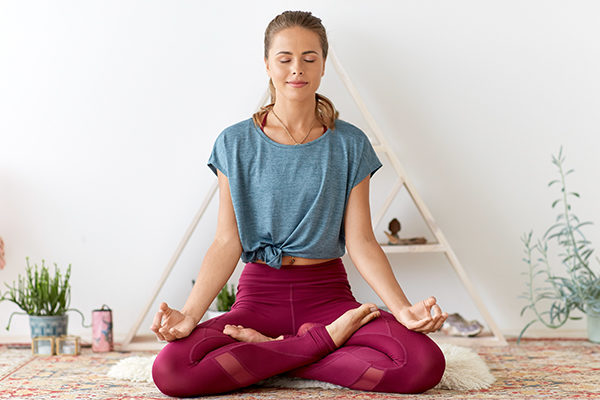Stress and anxiety are two of the most common mental health issues that people face in today’s fast-paced world. There are various ways to manage stress and anxiety, and one of the most effective ways is through meditation. Meditation is an ancient practice that has been used for centuries to improve mental and physical health.
What is Meditation?

Meditation is a practice that involves training the mind to focus and be present in the moment. It is a way of calming the mind and developing a deep sense of relaxation. Meditation can be practiced in various ways, including mindfulness meditation, transcendental meditation, and guided meditation. The key to meditation is to focus on the breath and be fully present in the moment.
How Does Meditation Help to Manage Stress and Anxiety?
Stress and anxiety are often caused by a racing mind that is overwhelmed with thoughts and worries. Meditation helps to calm the mind and reduce the number of thoughts that are racing through it. By practicing meditation, individuals can learn to let go of negative thoughts and emotions, which can help to reduce stress and anxiety levels.
Meditation also helps to regulate the nervous system, which is responsible for the body’s fight or flight response. When the body is under stress, the fight or flight response is triggered, which can cause physical symptoms such as increased heart rate, rapid breathing, and muscle tension. By practicing meditation, individuals can learn to regulate their nervous system and reduce the physical symptoms of stress and anxiety.
Types of Meditation for Stress and Anxiety
There are various types of meditation that can be practiced to manage stress and anxiety. Here are some of the most popular types of meditation:
- Mindfulness Meditation: This type of meditation involves focusing on the present moment and being aware of the thoughts and emotions that arise. The goal is to observe these thoughts and emotions without judgment.
- Transcendental Meditation: This type of meditation involves repeating a mantra to help focus the mind and achieve a deep state of relaxation.
- Guided Meditation: This type of meditation involves listening to a guided meditation that is designed to help calm the mind and reduce stress and anxiety.
Getting Started with Meditation

Getting started with meditation is easy, and it can be done from the comfort of your own home. Here are some steps to help you get started with meditation:
- Choose a quiet and comfortable place to meditate.
- Sit in a comfortable position with your back straight and your feet flat on the floor.
- Close your eyes and focus on your breath.
- If your mind begins to wander, gently bring your focus back to your breath.
- Start with just a few minutes of meditation each day and gradually increase the time as you become more comfortable with the practice.
Meditation is a powerful tool that can help to manage stress and anxiety. By practicing meditation, individuals can learn to calm their minds and reduce the physical symptoms of stress and anxiety. There are various types of meditation that can be practiced, and getting started with meditation is easy. With regular practice, meditation can become a natural part of your daily routine and help you to live a more peaceful and balanced life.

